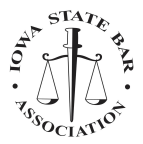When you are hurt on someone else’s property, whether it is residential or commercial property, the property owner may be liable for damages, including your medical bills. Premise liability law holds a property owner responsible for any damages arising out of an injury on their property – owners must make reasonable efforts to keep their property safe.
A duty of care involves keeping a property safe and free of hazards, and is owed to people who have a right to be on the property. Generally speaking if you are an invitee such as an employee, customer or tenant – then the owner or manager has a duty of care and is responsible for keeping the premises safe for those invited on to the property.
If you enter a property as a licensee for your own purposes or leisure, such as a mail carrier or a social guest, you enjoy a lesser duty of care, however, if you can prove that the owner (or manager) knew about or really should have known about of a dangerous condition or defect that resulted in your injury you may be able to pursue damages for your injuries.
If you are not invited – a trespasser not authorized to be on someone’s property – you are not owed a duty of care and the property owner would not be responsible for your injuries. However, since every situation is unique, it is certainly worthwhile to ask a personal injury attorney to find out what your options may be.
Always keep in mind that even if you are injured on someone’s property as an invitee, it is a two way street when determining negligence. If you slip and fall at a restaurant because you were distracted on your phone and did not see a prominently displayed wet floor sign, that might not be 100% the owner’s fault. If a big Iowa ice storm hits and it is clear to everyone that the sidewalk outside a business is hazardous shortly after the storm, the owner may not be held responsible if you roll the dice trying to enter.
Often, it is a matter of comparative negligence, which means that both the owner and the injured share in the fault. Therefore, if a plaintiff is partly at fault for an accident that resulted in the injury, damages will be adjusted downward. For example, if the damages (such as medical bills) add up to $10,000 and the plaintiff is 20% at fault (perhaps because they were careless) and a defendant is adjudged 80% at fault because he or she knew or reasonably should have known about a hazardous condition or defect, the plaintiff will receive a reduced award of $8,000 or 80% of the damages.
Iowa Property | Premises Liability Attorney
If you are unsure whether your injury is compensable under premises liability law, it is important to discuss your circumstances with an experienced Iowa premises liability lawyer. Having photographs of the area where the injury occurred showing the defect or hazardous condition, witness contact information, and medical records will help to prove that your injury was a result of a breach in the duty of care doctrine which may increase your compensation. Call Des Moines premises liability law attorney Marc A. Humphrey for help right away at 515-310-3510.






